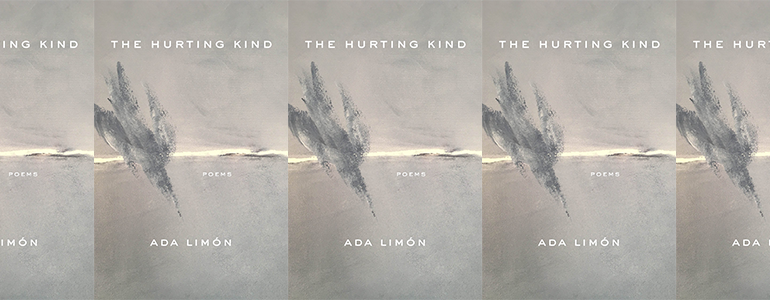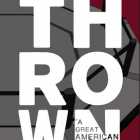Refusing Detachment in Ada Limón’s The Hurting Kind

The Hurting Kind
Ada Limón
Milkweed Editions | May 10, 2022
Resilience. Perseverance. “Grit.” Corporate buzzwords of the twenty-first century. These attitudes are praised, attributes valorized, qualities desperately sought. To achieve them requires a certain detachment: ignore setbacks, forget failure, avoid distraction.
But there are those who don’t aspire in such ways, those who Ada Limón names with the title of her new poetry collection: The Hurting Kind. Who are “the hurting kind”? Those who find themselves “too attached to this life.” Those who long for solitude, yet “carry so many people with us wherever we go.” Those who would rather be the “fox / [who] lives on the edges,” who “takes only what he needs / and lives a life that some might / call small.” Those who weep at “the true and serious beauty / of trees.” More than an aloof observer, Limón locates herself among such “kind” as well. “I have always been too sensitive,” the title poem declares, “a weeper / from a long line of weepers. // I am the hurting kind”—and the voices that animate these pages are always sympathetic to the particular sufferings, as well as the unique joys, that accompany this kind of living.
The Hurting Kind is structured in four sections, each a season of the year, highlighting both the collection’s frequent immersions in the natural world and its attunement to the rhythms, linear and cyclical, that condition our lives. Indeed, one imperative of the collection is to “watch // closely the world” from a variety of vantage points: a garden, a fire escape, a blow-up pool, a shared bed. An early poem, “Drowning Creek,” laments what’s lost when we fail to do so: “I saw the prettiest bird I’d seen all year, / the Belted Kingfisher… / I wanted to stop, stop the car / to take a closer look… / But already we were / a blur and miles beyond the flying fisher / by the time I had realized what I’d witnessed.” So intent on “driving fast toward home,” we miss our chance “to take a closer look.” Living as “blurs,” moreover, we’re “miles beyond” before we even realize the full extent of what we’ve missed.
“Watching closely,” however, is more than a practice of attentive noticing for “the hurting kind.” Rather, it generates a world where love and loss inscribe one another: a vision of infinite imbrication where all things are entangled in the meanings—and the confusions—of all other things. Despite its traditional associations with rebirth, for example, “Spring,” the first section/season of The Hurting Kind, arrives in Limón’s work with an expectation of violence, a moment of surprise when it doesn’t occur. “I thought it was the neighbor’s cat,” exclaims the first line of “Give Me This,” the section’s opening poem, “back / to clean the clock of the fledgling robins low / in their nest stuck in the dense hedge by the house.” There is “a small spasm of joy” when “it” turns out to be a groundhog, a “funny creature” who thieves a green tomato instead of a newborn bird, but it’s a thrill now complicated by the observer’s distance from the groundhog’s pleasure: “Why am I not allowed / delight?” she asks.
This is not, however, to reduce “the hurting kind” to those who find clouds behind silver linings or engage masochistic practices of performative suffering. As the closing lines of “Too Close” ask: “But haven’t we learned by now / that just because something / is bound to break / doesn’t mean we shouldn’t / shiver when it breaks?”
Rather, Limón affords constant dignity to those whose fragilities are too often framed as liabilities, those who can’t (or won’t) avoid the incessant constellating of experience and memory. “No one said it was my job to remember,” she acknowledges in the title poem, yet assures us, a few lines below, against abandonment: “I will not stop this reporting of attachments.” As in her 2018 collection The Carrying, Limón extends this awareness to fragilities of the body as well. “Today, my head is packed with cockroaches, // dizziness and everywhere it hurts,” she writes in “A Good Story”—a curious parallel with one of America’s earliest poets of both nature and bodily pain, Anne Bradstreet, who concluded her own “The Four Seasons of the Year” with the blunt declaration: “my Brain is bad.” Again and again, The Hurting Kind carves space for those who accept their role as witness, those who “endure time…loss and grief and reckoning” (“Banished Windows”) with grace and conviction.
The final poem of The Hurting Kind, “The End of Poetry,” is certain to become a staple of conversations about the possibilities of poetry itself. Originally published in the May 4, 2020 issue of the New Yorker and selected for The Best American Poetry 2021 by Tracy K. Smith, the poem’s repetition of “enough” speaks to the exhaustion of loneliness and isolation—the ongoing pandemic one of many unavoidable reading contexts: “enough of the will to go on and not go on… / enough of can you see me, can you hear me, enough / I am human, enough I am alone and I am desperate.” Despite the tenor of its title and opening lines—”Enough of osseous and chickadee and sunflower / and snowshoes, maple and seeds, samara and shoot, / enough chiaroscuro…” —“The End of Poetry” is less a dismissal of poetry’s contemporary relevance than a call to rethink the kind of poetry such moments demand. In this sense, it recalls Wallace Stevens’ imperative “Of Modern Poetry,” first published in his 1942 volume, Parts of a World: “It has to be living, to learn the speech of the place.”
Limón’s poetry embraces this challenge for the first decades of the twenty-first century, a time when so many echo the closing of “‘I Have Wanted Clarity in Light of My Lack of Light’”: “Once, I was brave, but I have grown so weary of danger. / I am soundlessness amid the constant sounds of war.”
For all life’s sufferings, through a myriad of hurts, The Hurting Kind refuses numb detachment or an easy forgetting. Modern poetry, Stevens wrote in the darkest moments of the last century, “must / Be the finding of a satisfaction.” “Enough” declares Limón in the darkest moments (so far) of our current one. “I am asking you to touch me.”



